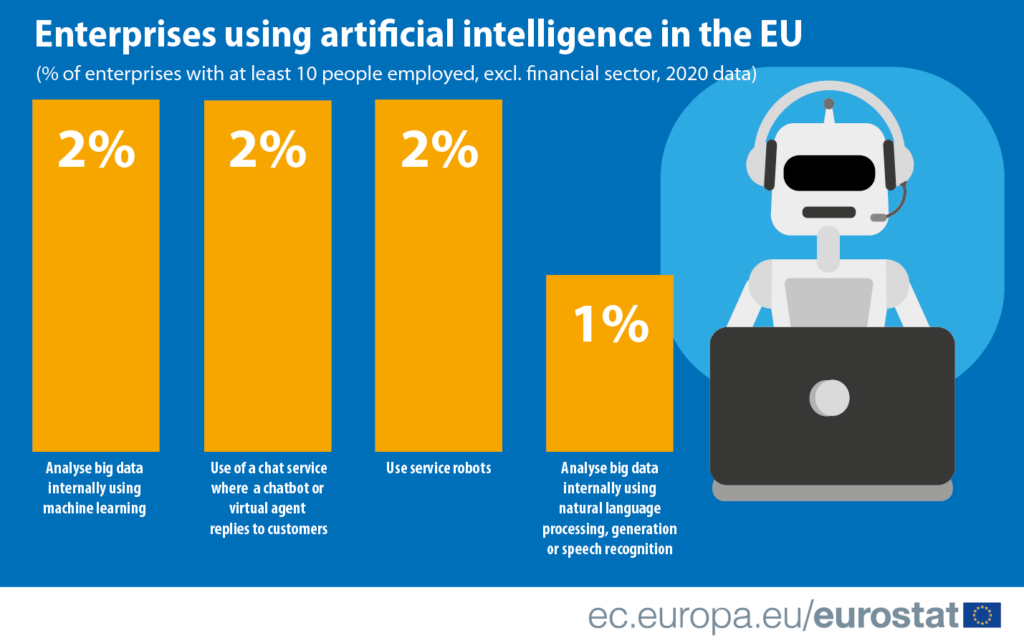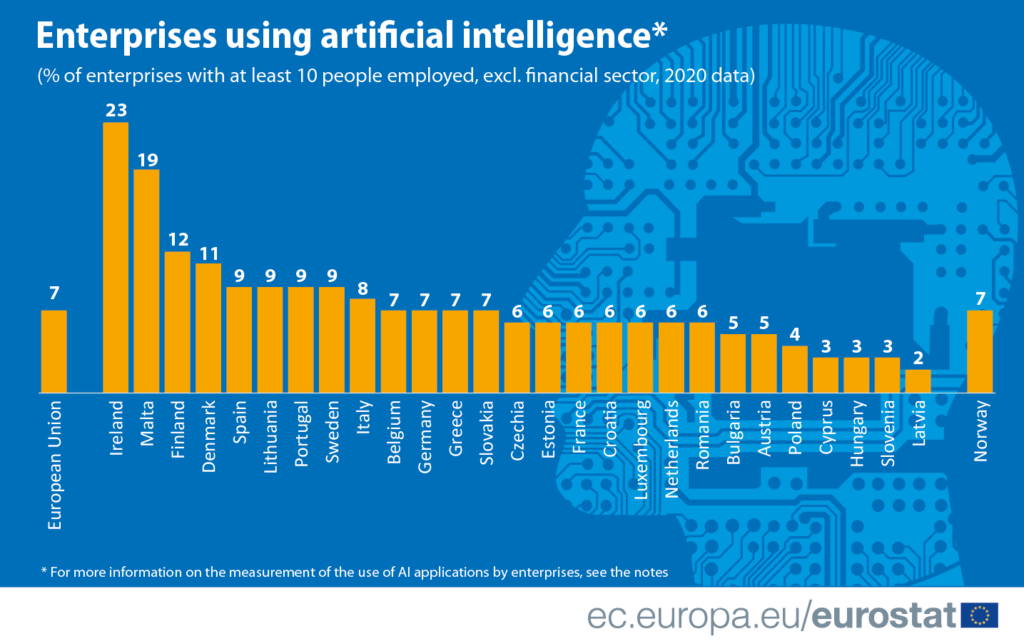Artificial intelligence (AI) is an area of strategic importance and a key driver of economic development. It can provide solutions to many challenges, such as treating diseases or minimising the environmental impact of farming. Artificial intelligence gives machines and systems the capability to analyse their environment and make decisions with some degree of autonomy to achieve specific goals.
Artificial intelligence in EU enterprises
In 2020, 7% of enterprises in the EU with at least 10 people employed used AI applications. While 2% of the enterprises used machine learning to analyse big data internally, 1% analysed big data internally with the help of natural language processing, natural language generation or speech recognition. A chat service, where a chatbot or virtual agent generated natural language replies to customers, was used in 2% of the enterprises. The same proportion of enterprises, 2%, used service robots, which are characterised with some degree of autonomy, for example to carry out cleaning, dangerous or repetitive tasks such as cleaning up poisonous substances, sorting items in the warehouse, helping customers in shopping or at payment points etc.
Among the EU Member States, Ireland recorded the highest share of enterprises (23%) that used any of the four considered AI applications in 2020. Other countries with widespread uptake of AI technologies were Malta (19%), Finland (12%) and Denmark (11%).
In contrast, less than 10% of enterprises used any of the four AI applications in 2020 in all other Member States. The lowest shares were recorded in Latvia (2%), Slovenia, Hungary, Cyprus (3% each) and Poland (4%).









Leave a Reply